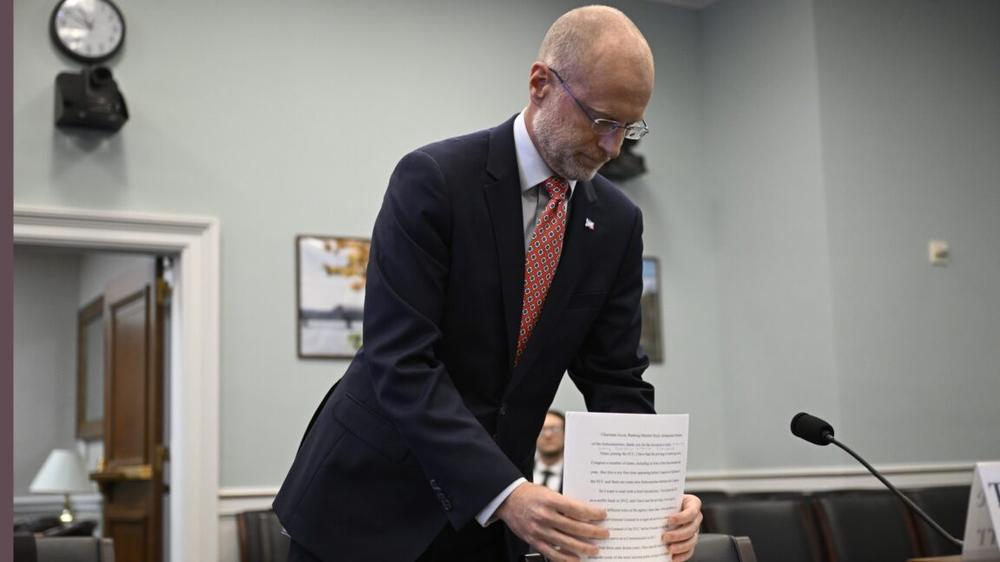Federal Communications Commission Chairman Brendan Carr says Internet service providers shouldn't have to list every fee they charge. Responding to a request from cable and telecom lobby groups, he is proposing to eliminate a rule that requires ISPs to itemize various fees in broadband price labels that must be made available to consumers.
The rule took effect in April 2024 after the FCC rejected ISPs' complaints that listing every fee they created would be too difficult. The rule applies specifically to recurring monthly fees "that providers impose at their discretion, i.e., charges not mandated by a government."
ISPs could comply with the rule either by listing the fees or by dropping the fees altogether and, if they choose, raising their overall prices by a corresponding amount. But the latter option wouldn't fit with the strategy of enticing customers with a low advertised price and hitting them with the real price on their monthly bills. The broadband price label rules were created to stop ISPs from advertising misleadingly low prices.
This week, Carr scheduled an October 28 vote on a Notice of Proposed Rulemaking (NPRM) that proposes eliminating several of the broadband-label requirements. One of the rules in line for removal requires ISPs to "itemize state and local passthrough fees that vary by location." The FCC would seek public comment on the plan before finalizing it.
"We propose to eliminate the requirement that providers itemize discretionary, recurring monthly fees that represent costs they choose to pass through to consumers and which vary by consumer location," Carr's draft proposal said. "Examples include state and local right of way fees, pole rental fees to utility companies, and other discretionary charges where the provider does not set rates or terms directly. We seek comment on whether providers should instead display on the label the aggregate amount of such fees."
So many fees, they “overwhelm” other label info
The proposal is part of Car's "Delete, Delete, Delete" initiative that aims to eliminate as many rules as possible. In the Delete, Delete, Delete proceeding, cable lobby group NCTA and other broadband industry groups asked the FCC to ditch the list-every-fee requirement and other broadband label rules.
The FCC was required by Congress to implement broadband-label rules, but the Carr FCC says the law doesn't "require itemizing pass through fees that vary by location."
"Commenters state that itemizing such fees requires providers to produce multiple labels for identical services," the FCC plan says, with a footnote to comments from industry groups such as USTelecom and NCTA. "We believe, consistent with commenters in the Delete, Delete, Delete proceeding, that itemizing can lead to a proliferation of labels and of labels so lengthy that the fees overwhelm other important elements of the label."
In a blog post Monday, Carr said his plan is part of a "focus on consumer protection." He said the FCC "will vote on a notice that would reexamine broadband nutrition labels so that we can separate the wheat from the chaff. We want consumers to get quick and easy access to the information they want and need to compare broadband plans (as Congress has provided) without imposing unnecessary burdens."
ISPs would still be required to provide the labels, but with less information. The NPRM said that eliminating the rules targeted for deletion will not "change the core label requirements to display a broadband consumer label containing critical information about the provider's service offerings, including information about pricing, introductory rates, data allowances, and performance metrics."
ISPs said listing fees was too hard
In 2023, five major trade groups representing US broadband providers petitioned the FCC to scrap the list-every-fee requirement before it took effect. Comcast told the commission that the rule "impose[s] significant administrative burdens and unnecessary complexity in complying with the broadband label requirements."
Rejecting the industry complaints, then-Chairwoman Jessica Rosenworcel said that "every consumer needs transparent information when making decisions about what Internet service offering makes the most sense for their family or household. No one wants to be hit with charges they didn't ask for or they did not expect."
The Rosenworcel FCC's order denying the industry petition pointedly said that ISPs could simplify pricing instead of charging loads of fees. "ISPs could alternatively roll such discretionary fees into the base monthly price, thereby eliminating the need to itemize them on the label," the order said.
Assuming Carr's proposal is implemented, ISPs will have less incentive to simplify their pricing. In addition to ditching the list-every-fee rule, his proposed rulemaking would eliminate a few other label rules.
One rule on Carr's chopping block requires ISPs to read the labels to customers over the phone. The rule was instituted to make the labels accessible to consumers who shop for broadband service on the phone instead of online.
"We believe that because the label is a fundamentally visual medium, its format does not easily lend itself to presentation in a telephone conversation," the Carr FCC proposal said.
Multilingual requirement could be axed
Another rule in line for axing requires providers to display the labels in customer account portals. The labels would still have to be available online when consumers shop for service. Citing objections from ISPs, the proposal said the "requirement may confuse customers over time and imposes a significant burden on providers. For example, as data and prices change, the original label [in the customer account portal] could become outdated and no longer useful."
One rule proposed for deletion requires ISPs to make labels available in machine-readable format. "We are unconvinced that the machine-readability requirement is a necessary component for transparency," the proposal said. "Machine readability might facilitate research or comparisons across many providers' plans by third parties, but the FCC's statutory mandate is to allow for the greater disclosure of information to consumers."
The FCC is also seeking comment on whether to eliminate a multilingual requirement that forces providers to display the labels in English and other languages spoken in their markets. Wireless lobby group CTIA asked the FCC to drop this rule.
Technically, the Carr FCC is not currently proposing to eliminate the multilingual rule. But including the question in the NPRM raises the possibility that it could be axed along with the other rules slated for deletion.
The NPRM is likely to be approved by the Republican-majority commission, though Democrat Anna Gomez could dissent. Gomez said in a statement provided to Ars today, "I believe that transparency in all aspects of a transaction helps consumers make fully informed decisions. I'm also deeply concerned about the proposal to remove the multilingual display requirement. If a company markets their service in multiple languages, then there should be no impediment to providing transparent information about the service in those languages. I'm reviewing all proposals in this notice with an eye to ensuring that consumers are not left in the dark as a result of our actions."

 Not a game: Cards Against Humanity avoids tariffs by ditching rules, adding explanations
Not a game: Cards Against Humanity avoids tariffs by ditching rules, adding explanations